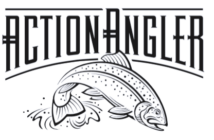From ASA:
New study cites reasons why anglers don’t fish and what will get them back on the water.
Alexandria, VA – March 15, 2012 – A 2007 study of state fishing license sales revealed that a majority of Americans who identify themselves as anglers don’t fish every year. The sportfishing industry, through the American Sportfishing Association (ASA), sought to find out why not, and perhaps more importantly, what these self-professed anglers do instead of fishing. The findings of that follow-up study – On the Fence About Fishing – conducted by Southwick Associates and Responsive Management on ASA’s behalf examines why anglers do and don’t fish, as well as offers recommendations about what will get them back on the water.
“With an estimated $1 billion generated by anglers each year for fisheries conservation, habitat restoration and angler access, there is much at stake in making it easier for people to enjoy recreational fishing,” said ASA Vice President Gordon Robertson. “The future of fishing and fisheries conservation depends on active anglers. These new findings provide information to help us to be more effective in attracting new anglers and keeping current anglers active.”
The primary reason cited by survey and focus group participants for not fishing was “not enough time,” most often due to changes in family, work or school obligations. Whether time considerations are real or perceived, all people still seek some sort of recreational escape that offers them fun, relaxation and quality time with family and friends. In choosing activities that replaced fishing, angling was often seen as less convenient than other pursuits.
Key outdoor activities found to compete with fishing include hunting, camping, hiking, golfing, gardening and trail running or walking for fitness. Indoor activities included watching television, cooking and reading. Anglers—whether still active or lapsed—largely prefer outdoor activities to indoor ones. That leaves abundant opportunities to attract lapsed anglers back to the water.
Key recommendations cited in the report to attract and retain anglers include:
Emphasize Fun, Relaxation, Family and Friends – Industry and agency fishing promotions and messaging must emphasize these components of fishing with a strong focus on how simple and fun recreational fishing is for men and women, boys and girls, novice and avid angler alike.
Increase Convenience – Because most anglers do not live in rural areas, fishing opportunities and access in urban and suburban locations must be provided, promoted and protected. Programs that lend equipment and provide simple, affordable instruction can help in this effort.
Invite Someone To Go Fishing – An interesting finding in the research was that many lapsed anglers said they would readily go fishing if someone simply invited them to go.
“Active anglers inviting others to join them on the water could well be the most cost-effective and measurably simple way to improve overall angler numbers,” noted Robertson. “The Recreational Boating & Fishing Foundation’s Anglers’ Legacy program is an excellent example of how avid anglers can help novice and lapsed anglers get back on the water.”
To review the report summary or the complete technical report presenting full details, visit www.SouthwickAssociates.com.
###
The American Sportfishing Association (ASA) is the sportfishing industry’s trade association, committed to looking out for the interests of the entire sportfishing community. We give the industry a unified voice speaking out when emerging laws and policies could significantly affect sportfishing business or sportfishing itself. We invest in long-term ventures to ensure the industry will remain strong and prosperous as well as safeguard and promote the enduring economic and conservation values of sportfishing in America. ASA also gives America’s 60 million anglers a voice in policy decisions that affect their ability to sustainably fish on our nation’s waterways through KeepAmericaFishing™, our angler advocacy campaign. America’s anglers generate over $45 billion in retail sales with a $125 billion impact on the nation’s economy creating employment for over one million people.
Southwick Associates was founded in 1989 to serve state fish and wildlife agencies and the outdoor industries. We specialize in economic and business statistics related to fish and wildlife. Our expertise includes measuring purchasing habits and trends by anglers, hunters, wildlife viewers and other outdoor recreationists; quantifying the jobs, tax revenues and other economic impacts of outdoor recreation; evaluating marketing efforts; assessing distribution channels and trade bottlenecks; and analyzing the value of fish and wildlife resources; and more.
Responsive Management is an internationally recognized public opinion and attitude survey research firm specializing in natural resource and outdoor recreation issues. Its mission is to help natural resource and outdoor recreation agencies and organizations better understand and work with their constituents, customers, and the public. Responsive Management has been conducting textbook-quality survey research for natural resource and outdoor recreation organizations for 22 years. Responsive Management research has been upheld in U.S. District Courts, used in peer-reviewed journals, and presented at major fish and wildlife management conferences across the world. Responsive Management research has also been featured in many of the nation’s top media, including CNN, NPR, Newsweek, The New York Times, The Wall Street Journal, The Washington Post and USA Today.



